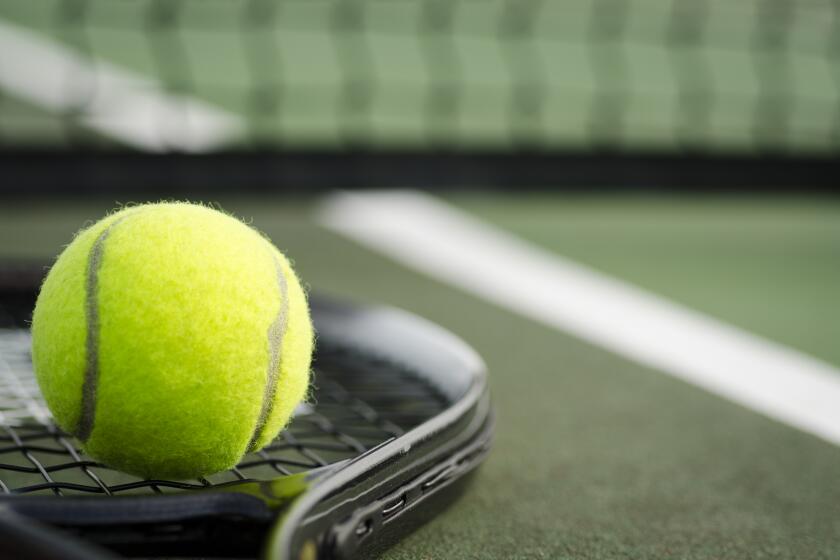Hiding Personal Bias
- Share via
It is difficult to say whether Robert Mechikoff’s commentary (“Women in Sports Will Beget Violence,” Dec. 15) is an ingenuous or disingenuous discussion of what he apparently regards as a “problem” of women’s increasing participation in contact sports. Mr. Mechikoff’s thesis is this: As more women take part in sports involving physical contact, they, and the men against whom they might compete, will become inured, even callous, to the prospect of hurting those of the opposite sex.
But hyperbole takes over when he predicts, “if the number of young women competing against young men in contact sports grows, one result will be the escalation of physical violence in our society.”
His premise is that organized sports competition involving physical contact instills aggression in its participants who, in turn, constitute a recognized source of societal violence. Women are choosing to compete in those sports. Therefore, opening those sports to women will serve to increase the population of dangerous persons in the community.
This amounts to a breathtaking syllogism entirely without foundation. The fact is that the vast majority of the population most commonly involved in crimes of violence--that is, young men between the ages of 15 and 35--never participated in organized athletics. This is a phenomenon penologists have remarked upon in many studies. (There are a number of suggested reasons. Most revolve around a lack of discipline or the unwillingness to work within a structured setting or routine, e.g., attending school, following instructions, cooperating with one’s teammates, etc.)
Mr. Mechikoff is justifiably alarmed when he notes the psychological harm incurred as a result of exposure to violence. His concern is understandable but misplaced when he attributes this to past or present participation in contact sports. It is fatuous to single out the controlled aggression required in certain sports as the raison d’etre of cultural violence. A far greater problem can be found in the unrestrained display of the carnage shown on prime-time television every night of the week.
In truth, participants in team or individual sports usually receive responsible coaching that teaches respect for an opponent and a sense of fair play. And, success in sports, whether on an individual or team level, demands discipline, self-control and restraint as prerequisites for winning.
Mr. Mechikoff’s real fear seems to be found in his opinion that “potentially large numbers of young women (will be) competing against young men in physical contact sports.”
There is absolutely no evidence this will come to pass. With few exceptions, the majority of women will have the barriers of lesser size, strength and muscle mass to overcome before they can become competitive in certain sports. In effect, the same limitations that winnow out most of us, men and women, during competition for a place on any team.
Mr. Mechikoff is accurate in his portrayal of sports as a microcosm of a society where, given roughly equivalent abilities and application, everyone should have a fair expectation of success. In truth, women rarely have enjoyed equal opportunities. To argue against allowing their participation in contact sports on the spurious grounds that they might become more aggressive is reasoning of the most pernicious sort.
Few high school coaches would debate the wisdom and fairness of selecting the most capable athlete available to compete against other teams. So, to cite a recent example as a possibility, if the best 92-pound wrestler at Serra High School is a female, shouldn’t she be allowed to carry the school colors onto the mat against rival schools?
To deny her or any other woman that right based on the bald assertion, unproven in any context, that she could become a future risk to the community is incandescent nonsense of the sort that commonly masks personal bias.
MICHAEL McNEW
San Diego
More to Read
Go beyond the scoreboard
Get the latest on L.A.'s teams in the daily Sports Report newsletter.
You may occasionally receive promotional content from the Los Angeles Times.










